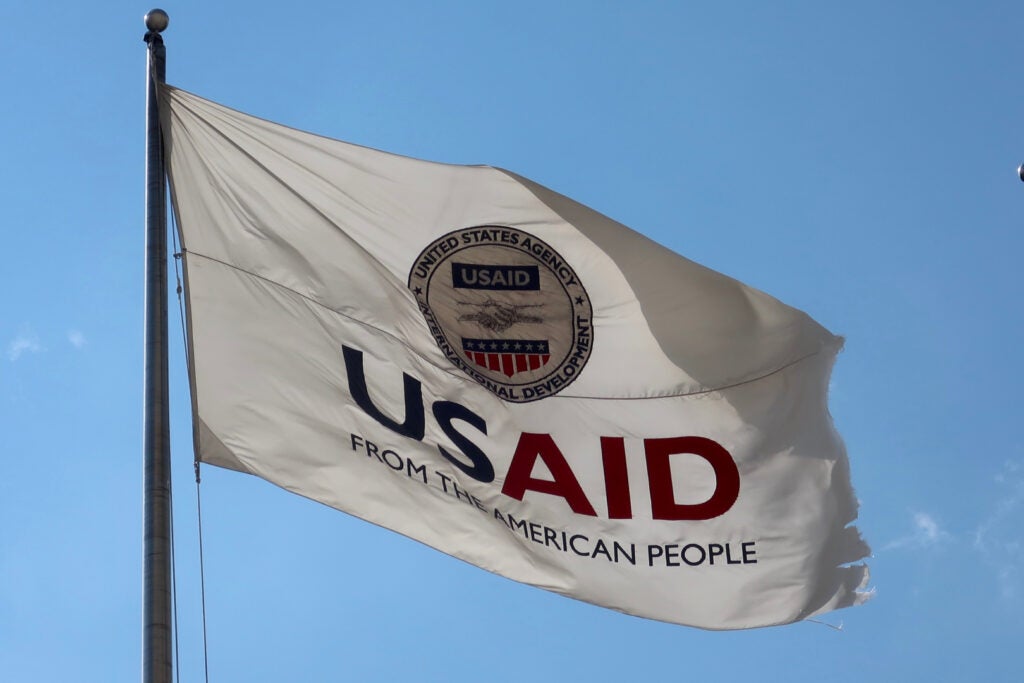Legal Ruling Preserves 2,200 USAID Jobs: A Blow to Trump’s ‘America First’ Strategy?
A recent legal decision has brought unexpected relief to 2,200 employees of the United States Agency for International Development (USAID), effectively halting the Trump administration’s proposed layoffs. This ruling not only protects these jobs but also raises significant questions regarding the implications for President Trump’s ‘America First’ strategy. The outcome represents a legal and political victory for those advocating for government employment stability amidst shifting administrative priorities.
Understanding the Legal Context
The Trump administration had sought to implement a controversial plan to reduce the workforce at USAID, arguing that such measures were necessary to streamline operations and reduce costs. This plan was met with widespread criticism from various stakeholders, including employees, labor unions, and advocacy groups, who argued that the proposed layoffs would undermine America’s global commitments and development efforts.
In a pivotal ruling, a federal court intervened, stating that the administration had overstepped its authority in attempting to unilaterally reduce the workforce without proper justification or adherence to established protocols. This decision is a notable example of the judiciary’s role in checking executive power, especially in matters concerning federal employment and public service.
The Implications for Trump’s ‘America First’ Strategy
President Trump’s ‘America First’ strategy has been characterized by a focus on prioritizing American citizens and interests, often at the expense of international collaboration and foreign aid initiatives. The recent ruling on USAID jobs poses several challenges to this approach:
- Contradictory Messaging: The preservation of 2,200 jobs at USAID sends a contradictory message about the administration’s commitment to its ‘America First’ agenda. By protecting these positions, the administration acknowledges the importance of international aid and its role in promoting global stability, which conflicts with previous statements prioritizing domestic over international concerns.
- Impact on Global Aid Initiatives: USAID plays a crucial role in delivering aid to countries facing crises, from natural disasters to humanitarian emergencies. The court ruling safeguards the agency’s capability to respond effectively, thereby reinforcing America’s image as a global leader in humanitarian efforts, a point that the Trump administration has often downplayed.
- Political Ramifications: The ruling may embolden critics of the administration’s approach to workforce management and foreign aid, potentially influencing upcoming elections. Voter sentiment could shift as constituents recognize the value of government employment in maintaining essential services and international relationships.
The Broader Impact on Government Employment Policies
This legal decision extends beyond the immediate ramifications for USAID employees. It reflects a broader concern regarding government employment policies under the Trump administration. The preservation of these jobs raises essential questions about how federal employment will be managed going forward:
1. Stability in Government Employment
With the court’s ruling, there is a renewed emphasis on job stability within federal agencies. Employees now have a glimmer of hope that their positions are secure, promoting a sense of morale and commitment to their roles. This is particularly vital in agencies like USAID, where skilled professionals are essential for effective global outreach.
2. Future Layoff Proposals
The ruling may deter future attempts by the administration to pursue layoffs without adequate justification or legal backing. Agencies may need to adopt more transparent and collaborative processes when considering workforce changes, ensuring that employee rights are respected and that essential services are not compromised.
3. The Role of Judicial Oversight
As seen in this case, the judiciary plays a critical role in safeguarding employee rights against executive overreach. This ruling could set a precedent for future cases involving government employment, reinforcing the notion that employees deserve protection against arbitrary decisions that could impact their livelihoods.
The Importance of USAID and Its Workforce
USAID’s workforce is not just a collection of jobs; it represents a commitment to global engagement and support for vulnerable populations worldwide. The agency’s work is crucial in various areas, including:
- Disaster Relief: USAID provides essential support in the aftermath of natural disasters, helping communities rebuild and recover.
- Health Initiatives: The agency plays a vital role in addressing health crises, such as the fight against HIV/AIDS, malaria, and other infectious diseases.
- Economic Development: USAID supports initiatives aimed at fostering economic growth in developing countries, which, in turn, helps to create stable environments and reduces the likelihood of conflicts.
By safeguarding the jobs of 2,200 employees, the court ruling underscores the significance of these efforts and the necessity of a skilled workforce to execute them effectively.
Looking Ahead: The Future of USAID and Its Employees
As the dust settles from this legal ruling, it is essential to consider what lies ahead for USAID and its employees. The preservation of jobs is undoubtedly a victory for those affected, but it also prompts discussions about the future direction of U.S. foreign aid and the role of government in employment.
Moving forward, it will be crucial for the Biden administration, or any subsequent administration, to engage in open dialogues with stakeholders about the importance of USAID’s mission and the need for a robust workforce. This includes:
- Investing in Employee Development: Ensuring that employees receive ongoing training and support to adapt to the evolving challenges of international aid.
- Enhancing Transparency: Establishing clearer communication channels regarding potential changes in agency structure or employment policies.
- Promoting Collaboration: Encouraging collaboration between government agencies, NGOs, and other stakeholders to maximize the impact of U.S. foreign aid efforts.
Conclusion
The recent legal ruling preserving 2,200 USAID jobs is not just a win for employees; it is also a significant moment in the ongoing dialogue about the role of government in employment and international aid. As the Trump administration’s ‘America First’ strategy faces challenges, this court decision highlights the complexities of balancing domestic priorities with global responsibilities. The future of USAID will depend on its ability to adapt, remain relevant, and continue to serve those in need around the world, all while ensuring that its dedicated workforce is secure and empowered to carry out its mission.
See more BBC Express News

